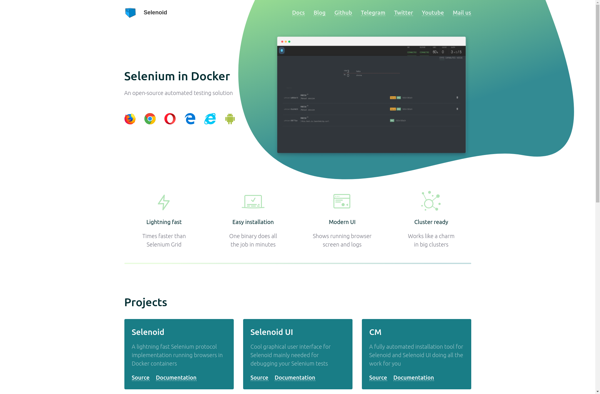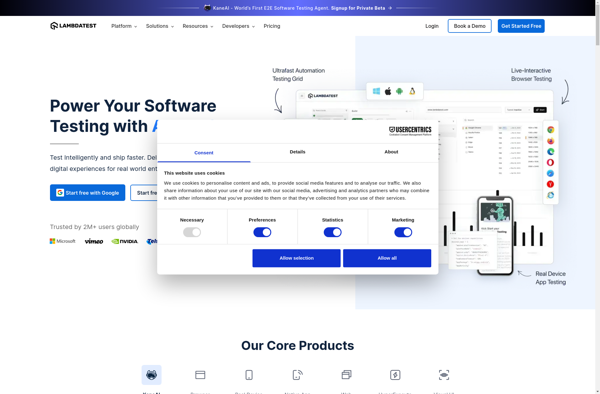Description: Selenoid is an open source alternative to browser testing tools like Selenium Grid. It is lightweight, scalable, and allows running browser tests in Docker containers.
Type: Open Source Test Automation Framework
Founded: 2011
Primary Use: Mobile app testing automation
Supported Platforms: iOS, Android, Windows
Description: LambdaTest is a cloud-based cross browser testing platform that allows users to test their websites and web apps across 2000+ different browsers, browser versions and operating systems. It provides features like responsive testing, real-time cross browser testing, live interactive testing, and more.
Type: Cloud-based Test Automation Platform
Founded: 2015
Primary Use: Web, mobile, and API testing
Supported Platforms: Web, iOS, Android, API

